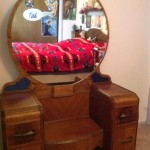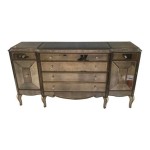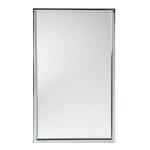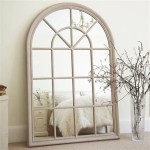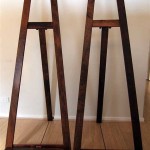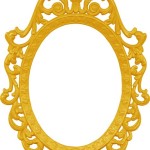Why Are Some Mirrors So Expensive?
Mirrors are ubiquitous objects found in nearly every home, reflecting our images and adding a touch of elegance to our surroundings. While basic mirrors can be purchased at affordable prices, some mirrors command exorbitant prices, leaving many wondering why they cost so much. The answer lies in a combination of factors, including the materials used, craftsmanship, and the value attributed to unique and historical pieces.
Exceptional Materials and Manufacturing Processes
One of the primary reasons behind the high cost of some mirrors is the use of premium materials and intricate manufacturing processes. Unlike ordinary mirrors made with standard glass and silver coatings, high-end mirrors often utilize specialized materials and techniques that enhance their quality, durability, and aesthetic appeal. For example, some antique mirrors may feature antique glass, which is thicker and heavier than modern glass, and has a unique character and appearance. This glass often has a slight greenish tint, reminiscent of the glassmaking techniques of earlier eras.
Beyond the glass itself, the reflective coating can also contribute to the price. While most mirrors use a silver coating, some high-end mirrors employ platinum or gold coatings, which are known for their superior reflectivity, longevity, and resistance to tarnishing. These coatings require advanced techniques and specialized knowledge to apply, adding to the overall cost. Moreover, the framing surrounding the mirror can also significantly impact the price. Handcrafted frames made from rare hardwoods, precious metals, or intricate carvings can add an extravagant touch and a substantial price tag.
Artisanship and Design
The artistry and craftsmanship behind some mirrors are key factors driving their value. Mirrors that are hand-blown, hand-cut, or hand-etched involve meticulous attention to detail and hours of labor, elevating them beyond mass-produced counterparts. Similarly, antique mirrors often possess a unique history and provenance, making them highly sought after by collectors. The rarity and authenticity of these pieces, combined with their historical significance, contribute to their high price.
The design of a mirror can also play a crucial role in determining its value. Mirrors with complex geometric patterns, intricate carvings, or unique shapes require skilled artisans and specialized tools, adding to the cost. Moreover, the design and size of the mirror can influence its functionality and impact on a space. Large, ornate mirrors that serve as statement pieces are often more expensive than smaller, simpler ones.
Brand Reputation and Exclusivity
Like many luxury goods, the reputation and brand of the mirror manufacturer can also influence its price. Renowned designers and artisans are often associated with exclusivity and quality, commanding premium prices for their creations. These mirrors may be produced in limited quantities, further enhancing their exclusivity and desirability. Furthermore, the age and provenance of a mirror can contribute to its value. Antique mirrors from renowned makers or with historical significance, such as those used in historic homes or palaces, can fetch substantial sums at auction.
The association with a particular designer or artisan can elevate a mirror's status and attract a higher price. For example, mirrors designed by well-known interior designers often bear a premium due to the prestige associated with their name and reputation. These mirrors become more than just functional objects; they become art pieces that reflect the aesthetic and design sensibilities of the designer.
Beyond the Tangible: The Intangible Value of Mirrors
Beyond the tangible aspects of materials, craftsmanship, and brand, the value of a mirror can also stem from intangible factors. Mirrors have long held a symbolic and cultural significance, reflecting not only our physical appearance but also our inner selves and the spaces we inhabit. In some cultures, mirrors are believed to possess mystical properties, acting as portals between worlds or reflecting our souls. These symbolic associations can elevate a mirror's value and make it a treasured possession.
The emotional connection that an individual may have with a mirror can also inflate its value. A mirror passed down through generations, a mirror that witnessed significant life events, or a mirror that holds personal memories can be priceless to its owner. The sentimental value attached to such mirrors goes beyond monetary worth, becoming a tangible representation of history, family, and personal experience.

Why Are Mirrors So Expensive 5 Important Factors To Know Moyes Glass

Why Are Mirrors So Expensive 5 Important Factors To Know Moyes Glass

Why Are Mirrors So Expensive 5 Important Factors To Know Moyes Glass

Why Are Mirrors So Expensive

Why Are Mirrors So Expensive

Why Are Mirrors So Expensive Top 5 Reasons

Why Are Mirrors So Expensive
Why Do Some Mirrors Make You Look More Attractive Than Other And Which One To Trust Quora

Why Are Vanity Mirrors So Expensive Mirrorank

Why Are Mirrors So Expensive

